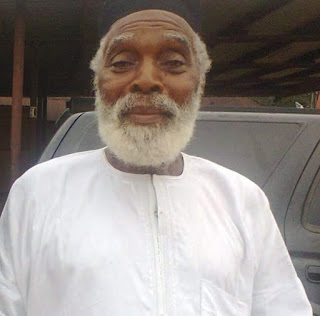BlissGh Latest Ghana Music and Nigerian Music Download, Free mp3 Downloads, Ghana Entertainment and General News, Gossips, Buzz, Spoofs and More Fun
Labels
- 1 click
- 17 yr old
- 2 chainz
- 2 in 1
- 2014
- 2015
- 2016
- 2baba
- 2Face Idibia
- 2kriss
- 4x4
- 5five
- 99k
- 9ice
- a-q
- a'won boy
- Aboza
- Abraham Attah
- Abrewa Nana
- accra mall
- acehood
- Actor Judas
- actors
- actress
- Adane Best
- Adangba
- Addiction
- adebayor
- adekunlegold
- Adokiye
- Adomaa
- adonai
- afia schwarzenegger
- african fever
- afriyie wutah
- afrocent3
- Agya Koo
- agyekum
- Ahuofe Patri
- Aj Nelson
- Aj omo Alajah
- AK Songstress
- aka
- Aka Blay
- Akayida
- akon
- akoo nana
- akwaboah
- album
- alkaline
- all stars
- AMAA
- amanda aquah
- american idol
- Amony K
- anas
- andrethefuture
- angel
- angel opomulero
- Anita Bans
- anonymous
- Appiatus
- Apple
- are P-Square
- aroma
- artquake
- Asa
- asaase aban
- Asamoah Gyan
- asem
- atom
- Atom Reloaded
- atsu koliko
- Atumpan
- Atumpan regina
- awal
- awilo longomba
- ay.com
- Ayayaa
- ayitey powers
- Azay
- b bred
- b-red
- baba spirit
- Baby Suarez
- bamboo stick
- Bami Mujo
- banana from ghana
- bang
- banger
- Banky W
- bar4bar
- Barima Sidney
- base one
- Basket Mouth
- BASS Awards
- Bastero
- BBnZ
- bea
- Beats
- becca
- Belinda
- Bernice Offei
- Beyonce
- big mo
- Biography
- Biography of the week
- bipo
- Bisa Kdei
- Bishop Daniel Obinim
- Bismark Thejoke
- bk
- Black Stars
- blackah
- blackgate
- blackmagic
- Blaka Gh
- blakk rasta
- blissg
- blissgh
- blissgh.blogspot
- blissgh.com
- Bob Okala
- boko boko
- bollie
- bomsa ani
- boobs
- booza kay
- bovi
- boyoyo
- Boys Abre
- boys kasa
- Bra Kevin
- bracket
- Bradez
- BraZane
- Breaking up
- breakthrough album 2015
- BringBackOurGirls Campaign
- brown shuga
- brymo
- BTS
- bukom banku
- Bulldog
- Burna Boy
- BURST MY BRAIN
- Buzz
- C Zar
- C-Real
- Cabum
- Can I Talk
- cant cool
- capasta
- caroline sampson
- cartel big j
- cash wale
- Casper Nyovest
- cassper nyovest
- castro
- castro is dead
- cdq
- charass
- Chase Forever
- cheating
- chee
- chidima
- chidinma
- chizzy
- Choir Masta
- chordratic
- Chris Attoh
- Chris Brown
- Chris Chameleon
- chriss wadle
- chronixx
- chuddy k
- circle
- coptic
- creative
- criss waddle
- Cwesi Oteng
- Cyba
- cynthia morgan
- D Black
- D Cryme
- d dryme
- D-Flex
- d'banj
- d'prince
- D2
- Da Hammer
- da l.e.s
- daddy lumba
- damayo
- Damilola Adegbite
- dammy krane
- danagog
- Dancehall
- dangerous
- danny beats
- danny beatz
- Danny Beatz ft. Ticles yensa mbom unity
- Danso Abiam
- dark suburb
- David Oscar
- Davido
- Dblack
- ddt
- de thompson
- debate
- Decisions
- Dee Moneey
- Deeba
- deekay
- deepest
- dejavu
- delay
- delly dzima
- Deon Boakye
- Desmond Elliot
- dex kwasi
- Diabetes
- Diamond Appiah
- Diamond Platnumz
- Diana Asamoah
- dija
- diss
- DJ Arafat
- Dj big N
- dj frizzie
- dj hautache
- dj hobby
- dj humility
- Dj jimmy Jat
- dj juls
- dj kamol
- dj kaywise
- dj kess
- dj massive
- dj mekzy
- dj mensah
- dj mic smith
- dj mix
- dj neptune
- dj page
- dj sawa
- dj scratch masta
- dj spinall
- dj xclusive
- Dj Xpliph
- dj young
- dj zanglin
- Dj-TKay
- Djbreezy
- djmix
- djxclusive
- DKB
- dobble
- dogo yaro
- don jazzy
- don p
- donaeo
- donzy
- download
- DPRINCE
- dr sid
- Dr. sid
- drake
- drey beatz
- DrRay Beat
- duke d2
- duo
- durella
- DXD
- E.L
- eazy
- eazzy
- ebola
- Eclipse
- eddy kenzo
- edem
- eduwodzi
- Efya
- Ekiiki Mi
- EL
- Elorm 2016
- Emeka
- emergency
- emma nyra
- emmy gee
- emperor
- energy
- Ennwai
- eno
- entertainment
- Entertainment World
- ephraim
- Episode
- Ernest Opoku
- eShun
- Eugy
- eva
- eva alordiah
- event
- ex doe
- exposes.
- Eyan Mayweather
- Eyoh Soundboy
- Eze
- faith kay
- falefale
- fally ipupa
- falz
- fameye
- fan
- farggo
- Fast And Furious
- fauster atta mensah
- favourite
- faze
- Featured
- feli nuna
- Fifa World Cup Brazil 2014
- firestone
- fita
- flava
- Flavor
- flavour
- fliptyce
- floeasy
- floss
- flowking stone
- FOKN Bois
- Foods
- force beatz
- fortune dane
- frank edwards
- frankcee
- Freestyle
- ft J Martins
- Full List Of The Winners
- fullpage
- funny ads
- Funnyface
- funnypics
- funyvideos
- fuse odg
- gafacci
- gallardo
- Gallaxy
- Games
- gangup samini
- gappy ranks
- Gasmilla
- gazza
- gbelemo
- Gemini
- general
- General News
- genesis
- george nathaniel
- ghana
- ghana news BlissGh•com
- Ghanaleaks
- ghanalyrics
- ghanamotion
- ghanamusic
- ghanandwom
- ghetto
- ghetto k.b
- Ghetto University
- ghexclusives
- ghmu
- ghmusic
- Gifty Anti
- gifty osei
- Gist
- gnc
- go higher
- godwin
- goodies
- gospel music
- gospelonthebetz
- gosple
- great ampong
- gudmood
- guru
- gurugh
- gurunkz
- hafeez
- halle
- hans
- Happiness
- harrysong
- health
- Health-Tips
- Henry Knight
- hi-life
- highlife
- hilifemusic
- hiphop
- hitzgh
- hollywood
- hommie
- HOT
- humblesmith
- hus eugene
- hype
- I Dey Feel You Die
- ice bucket challenge
- iceprince
- idris elba
- IFTTT
- ijeoma
- ikechukwu
- ikes
- iLLBLiSS
- ini edo
- Ink Edwards
- instrumental
- interview
- iphone 6
- Irene Logan
- Itz Tiffany
- Ivory Coast
- iwan
- iyalaya
- Iyanya
- j martins
- j town
- Jacky Appiah
- jadiluc
- Jah Vinci
- jah9
- jahbless
- jaij hollands
- jamaica
- jamie xx
- Janet Badu
- jason E.L A
- jay ghartey
- Jay-Z
- jayso
- jaywon
- Jennifer Attieku
- jeremih
- jesse jagz
- Jesus
- jiggy
- Jim Ike
- jm music
- jmj
- joe el
- joe fraizer
- joey b
- JoeyB
- john dumelo
- john mahama
- joins vip
- jokes
- Jon Jermain
- joshbeatz
- Joshua (Keche)
- juliet ibrahim
- juls
- Jupiter
- justin bieber
- k.k fosu
- K2 - Shakulu
- k9
- kaakie
- kach
- kallybos
- kalybos
- Kanye West
- kao denero
- karma
- Kay Dizzle
- kay switch
- kayswitch
- KCEE
- Keche
- kelly handsome
- Kenya
- kesse
- kid konnect
- kida kudz
- kiesza
- Killbeatz
- King Ayisoba
- king of accra
- kingship
- kinto
- Kisa
- kiss daniel
- kkd
- kkfosu
- klever jay
- knii lante
- ko jo cue
- Ko-Jo Cue
- kobby
- Kobi rana
- koene
- Kofi B
- Kofi Kinaata
- kofi kinata
- kofi mante
- kofi nti
- kojo cue
- kola soul
- Konfi
- kontihene
- Koo Ntakra
- kooko
- korede bello
- kotodwe
- Krizz
- kumi Guitar
- kunta kinte
- Kuntunimu
- kwabena kwabena
- kwaisey pee
- kwaku menu
- kwamz
- kwamz & flava
- Kwasi J
- kwaw kese
- kwaw kesse
- kwehu
- kyla
- lady jay
- lami philips
- Larry Lizzard
- last borny
- laylow
- leak
- leaked pics
- leakedvideos
- leaks
- Learn to fly 2
- Legendurybeatz
- legon
- legon girls
- leni
- LETTER TO CHARTER HOUSE CHAPTER 2
- Levy
- LifeStyle
- Lighter
- Lil Chaze
- lil jojo
- lil kesh
- lil shaker
- lil win
- lilas lafleur
- Lilwin
- lj
- Lobidis
- Local
- local movies
- lousika
- love and affection
- lucky mensah
- lydia forson
- Lyk Wonder
- lynxxx
- lyricalwanzam
- lyrics
- M.anifest
- M.I Abaga
- M.K Gyata
- m3dal
- m3nsa
- m3nsah
- Maame Dokono
- mafikizolo
- magnom
- maheeda
- Mairé
- major lazer
- makuma
- malaysia
- maleek berry
- Man sues hospital for shortening his penis
- mario extreme
- mary
- masta garzy
- master garzy
- MasterKraft
- mavins
- MayD
- mbrymo
- Mc Flava
- mc galaxy
- medikal
- Meek Mill
- melissa steel
- melloquence
- menn on point
- Michael Essien
- mike baggz
- miklez
- Mile 7 Saga
- milli
- Miss Ghana
- missile riddim
- missile ridim
- mista silva
- Mix Masta Garzy
- mixtapes
- MoCheddah
- models
- Moelogo
- moesha
- Moesha Boduong
- mojeed
- monica ogah
- more
- moriah mayson
- moti cakes
- movado
- movie trailers
- movies
- mp3
- mp4
- mr 2kay
- mr eazi
- mr olu maintain
- mr raw
- mr. mayd
- ms ada
- mslye
- Mugeez
- muna obiekwe
- muntary
- music
- musicvideos
- muvie-trailer
- mxbel
- My Friend
- My Homeland Refix
- mzbel
- MzVee
- n6
- Na Me Dey There
- nab
- Nacee
- nadia nakai
- naeto c
- Naija Boyz
- naija leaks
- naked phoos
- nana aba anamoah
- Nana Acheampong
- nana ama mcbrown
- nana boroo
- nana frema
- nana quame
- Nana trilla
- natural face
- nero x
- new
- new guy
- newartist
- newguy
- news
- ngmusic
- Nicki Minaj
- Nigeria
- nightmare
- nii funny
- nikki laoye
- nikki samonas
- niyola
- no mercy
- noble nketsiah
- Nollywood
- nshorna muzic
- Ntakra Ne Mc
- ntatia
- Nuhu Abu Hassan
- nyame ay3 bi
- Obiba
- obinim
- Obrafour
- obumpa
- OD4
- Odd News
- Official
- Ofori Amponsah
- ohemaa mercy
- Okyeame Kwame
- okyeame quophi
- Olamide
- old sodja
- omar sterling
- omgghana
- omo akin
- omoakin
- Omotola Jalade
- On a Spaceship
- Opanka
- orezi
- oritis femi
- oritse femi
- ortis femi
- other
- Owusu Bemp[ah
- oyinkanade
- p square
- P-Square
- p.r.e
- Paa Kwasi
- Paedae
- pallaso
- panya
- papii j
- pappy kojo
- paris
- parker v
- pasuma
- Patoranking
- Paul Okoye
- Pay Back
- peace
- pepenazi
- Peres
- personal person
- peteru
- phenom
- phootprintz
- photos
- phyno
- pic of the day
- pictures
- Pinga
- poe
- ponobiom
- pop skinny
- popcaan
- pope skinny
- Power of a Woman
- praize
- praye
- pre
- pregnant
- presh
- priest
- promise
- Promo
- promzy
- pukado
- Quata
- question of the day
- quincy b
- quotes
- R Kelly
- R2bees
- ramz nic
- rapcha
- Raquel
- Ras Kuuku
- rashelle blue
- rashid metal
- rauel
- rayce
- Raymond Vanny
- red carpet
- redred
- Reefa
- reekado banks
- reggae
- reggie & bollie
- Reggie Rockstone
- reggie zippy
- Relashionship
- relationship
- reminisce
- remix
- Remix Fita
- rex omar
- Richie badder
- richie rich
- Rick Ross
- riddim
- Rihanna
- rnb
- rocky dawuni
- romance
- Roro
- rubby gyamfi
- rudebwoy ranking
- ruff n smooth
- ruggedman
- runtown
- Ruth Adjei
- Ruth Kadiri
- sa music
- sakodie
- samcole
- samini
- samklef
- samkleff
- Sammy Forson
- sammylee
- samsung
- samusic
- Sarah Kwabla
- sarknation
- sarkodie
- sasco
- sauti sol
- SBeez
- school
- Scientific
- screwfaze
- sdc
- sean cza
- sean paul
- sean tizzle
- Seihor
- selebobo
- selfie
- seshi
- sex
- sexy steel
- seyi shay
- seyi shaym
- shaker
- shatta rako
- shatta wale
- shattawale
- shaydee
- she's my world
- sheebah
- sheriffa gunu
- shilo
- shirley frimpong manso
- shots on shots
- showbiz
- shuki
- si unit
- silva jay
- silvastone
- silverstone
- sir dauda
- sista afia
- sister deborah
- Skales
- skiibii
- skillful
- Skinny Legend
- skonti
- slowly
- slyde
- small small
- snow b
- socrate sarfo
- Sodom and Gomorrah
- sola ogudugu
- solidstar
- soni
- sonniballi
- sossick
- soulja slim
- Sound Sultan
- south Africa
- splendid
- spoof
- sports
- squs
- stanley
- stanley enow
- Stay Jay
- Stay Jay - Mugu
- stephanie okereke
- Stone
- stonebwoy
- stormrex
- Strongman
- stunnah gee
- stylezz
- Submarine
- Submarine by stonebwoy
- Subzilla
- sudan
- sugarboy
- sway
- Symple
- t obey
- t.r
- t.vii
- tah mac
- Taifa
- TALK OF GH
- Tania Omotayo
- Tanzania
- Tanzania Music
- tast the money
- tatoos
- TB Joshua
- teacher
- Tech-News
- techgh
- teddy-a
- tee blaq
- teejay
- Teephlow
- teezee
- tekno
- tema girl
- terry g
- testimony
- the bar 2
- the warning
- the workshop
- Theme-Song for Black-Stars
- throwback
- tic tac
- tiffany
- tim godfrey
- tim westwood
- timaya
- tinny
- tinogh
- Tiwa Savage
- Today and Tomorrow
- tolu
- Tonga remix
- tonia
- tonto dikeh
- too much
- toofan
- top 10
- Torgbe
- Trigmatic
- Trivia
- trozo
- Try Another Time
- tunde ednut
- tunex saxophone
- tupengo
- tutulapato
- two in one
- tyga
- tyroon da prince
- tyson
- Uhuru
- uk
- UPS
- van vicker
- vector
- Verified
- VGMA
- victoria kimani
- video
- videodownloads
- viktoh
- vip
- Vision Dj
- vvip
- vybrant faya
- vybx kartel
- wa shatta me
- Waje
- wale davis
- Wande Coal
- Wanlov The Kubolor
- wanluv
- wassce
- We Rock
- weird
- wine ya waist
- wisa
- wisa greid
- Wiyaala
- wizboyy
- WizKid
- wizzypro
- Wo Play
- World
- WTF news
- wyclef jean
- x.o senavoe
- xfactor2015
- xpowa
- Yaa Pono
- Yaw Siki
- yawa
- ybnl
- yc
- Ycee
- Yemi Alade
- yemi rush
- young d
- Young Rich
- Youngdon
- yq
- Yung L
- yung6ix
- yungkay
- yvonne nelson
- Yvonne Okoro
- zeal
- zeez
- zionfelix
- zoro
- zulan
Labels
- 1 click
- 17 yr old
- 2 chainz
- 2 in 1
- 2014
- 2015
- 2016
- 2baba
- 2Face Idibia
- 2kriss
- 4x4
- 5five
- 99k
- 9ice
- a-q
- a'won boy
- Aboza
- Abraham Attah
- Abrewa Nana
- accra mall
- acehood
- Actor Judas
- actors
- actress
- Adane Best
- Adangba
- Addiction
- adebayor
- adekunlegold
- Adokiye
- Adomaa
- adonai
- afia schwarzenegger
- african fever
- afriyie wutah
- afrocent3
- Agya Koo
- agyekum
- Ahuofe Patri
- Aj Nelson
- Aj omo Alajah
- AK Songstress
- aka
- Aka Blay
- Akayida
- akon
- akoo nana
- akwaboah
- album
- alkaline
- all stars
- AMAA
- amanda aquah
- american idol
- Amony K
- anas
- andrethefuture
- angel
- angel opomulero
- Anita Bans
- anonymous
- Appiatus
- Apple
- are P-Square
- aroma
- artquake
- Asa
- asaase aban
- Asamoah Gyan
- asem
- atom
- Atom Reloaded
- atsu koliko
- Atumpan
- Atumpan regina
- awal
- awilo longomba
- ay.com
- Ayayaa
- ayitey powers
- Azay
- b bred
- b-red
- baba spirit
- Baby Suarez
- bamboo stick
- Bami Mujo
- banana from ghana
- bang
- banger
- Banky W
- bar4bar
- Barima Sidney
- base one
- Basket Mouth
- BASS Awards
- Bastero
- BBnZ
- bea
- Beats
- becca
- Belinda
- Bernice Offei
- Beyonce
- big mo
- Biography
- Biography of the week
- bipo
- Bisa Kdei
- Bishop Daniel Obinim
- Bismark Thejoke
- bk
- Black Stars
- blackah
- blackgate
- blackmagic
- Blaka Gh
- blakk rasta
- blissg
- blissgh
- blissgh.blogspot
- blissgh.com
- Bob Okala
- boko boko
- bollie
- bomsa ani
- boobs
- booza kay
- bovi
- boyoyo
- Boys Abre
- boys kasa
- Bra Kevin
- bracket
- Bradez
- BraZane
- Breaking up
- breakthrough album 2015
- BringBackOurGirls Campaign
- brown shuga
- brymo
- BTS
- bukom banku
- Bulldog
- Burna Boy
- BURST MY BRAIN
- Buzz
- C Zar
- C-Real
- Cabum
- Can I Talk
- cant cool
- capasta
- caroline sampson
- cartel big j
- cash wale
- Casper Nyovest
- cassper nyovest
- castro
- castro is dead
- cdq
- charass
- Chase Forever
- cheating
- chee
- chidima
- chidinma
- chizzy
- Choir Masta
- chordratic
- Chris Attoh
- Chris Brown
- Chris Chameleon
- chriss wadle
- chronixx
- chuddy k
- circle
- coptic
- creative
- criss waddle
- Cwesi Oteng
- Cyba
- cynthia morgan
- D Black
- D Cryme
- d dryme
- D-Flex
- d'banj
- d'prince
- D2
- Da Hammer
- da l.e.s
- daddy lumba
- damayo
- Damilola Adegbite
- dammy krane
- danagog
- Dancehall
- dangerous
- danny beats
- danny beatz
- Danny Beatz ft. Ticles yensa mbom unity
- Danso Abiam
- dark suburb
- David Oscar
- Davido
- Dblack
- ddt
- de thompson
- debate
- Decisions
- Dee Moneey
- Deeba
- deekay
- deepest
- dejavu
- delay
- delly dzima
- Deon Boakye
- Desmond Elliot
- dex kwasi
- Diabetes
- Diamond Appiah
- Diamond Platnumz
- Diana Asamoah
- dija
- diss
- DJ Arafat
- Dj big N
- dj frizzie
- dj hautache
- dj hobby
- dj humility
- Dj jimmy Jat
- dj juls
- dj kamol
- dj kaywise
- dj kess
- dj massive
- dj mekzy
- dj mensah
- dj mic smith
- dj mix
- dj neptune
- dj page
- dj sawa
- dj scratch masta
- dj spinall
- dj xclusive
- Dj Xpliph
- dj young
- dj zanglin
- Dj-TKay
- Djbreezy
- djmix
- djxclusive
- DKB
- dobble
- dogo yaro
- don jazzy
- don p
- donaeo
- donzy
- download
- DPRINCE
- dr sid
- Dr. sid
- drake
- drey beatz
- DrRay Beat
- duke d2
- duo
- durella
- DXD
- E.L
- eazy
- eazzy
- ebola
- Eclipse
- eddy kenzo
- edem
- eduwodzi
- Efya
- Ekiiki Mi
- EL
- Elorm 2016
- Emeka
- emergency
- emma nyra
- emmy gee
- emperor
- energy
- Ennwai
- eno
- entertainment
- Entertainment World
- ephraim
- Episode
- Ernest Opoku
- eShun
- Eugy
- eva
- eva alordiah
- event
- ex doe
- exposes.
- Eyan Mayweather
- Eyoh Soundboy
- Eze
- faith kay
- falefale
- fally ipupa
- falz
- fameye
- fan
- farggo
- Fast And Furious
- fauster atta mensah
- favourite
- faze
- Featured
- feli nuna
- Fifa World Cup Brazil 2014
- firestone
- fita
- flava
- Flavor
- flavour
- fliptyce
- floeasy
- floss
- flowking stone
- FOKN Bois
- Foods
- force beatz
- fortune dane
- frank edwards
- frankcee
- Freestyle
- ft J Martins
- Full List Of The Winners
- fullpage
- funny ads
- Funnyface
- funnypics
- funyvideos
- fuse odg
- gafacci
- gallardo
- Gallaxy
- Games
- gangup samini
- gappy ranks
- Gasmilla
- gazza
- gbelemo
- Gemini
- general
- General News
- genesis
- george nathaniel
- ghana
- ghana news BlissGh•com
- Ghanaleaks
- ghanalyrics
- ghanamotion
- ghanamusic
- ghanandwom
- ghetto
- ghetto k.b
- Ghetto University
- ghexclusives
- ghmu
- ghmusic
- Gifty Anti
- gifty osei
- Gist
- gnc
- go higher
- godwin
- goodies
- gospel music
- gospelonthebetz
- gosple
- great ampong
- gudmood
- guru
- gurugh
- gurunkz
- hafeez
- halle
- hans
- Happiness
- harrysong
- health
- Health-Tips
- Henry Knight
- hi-life
- highlife
- hilifemusic
- hiphop
- hitzgh
- hollywood
- hommie
- HOT
- humblesmith
- hus eugene
- hype
- I Dey Feel You Die
- ice bucket challenge
- iceprince
- idris elba
- IFTTT
- ijeoma
- ikechukwu
- ikes
- iLLBLiSS
- ini edo
- Ink Edwards
- instrumental
- interview
- iphone 6
- Irene Logan
- Itz Tiffany
- Ivory Coast
- iwan
- iyalaya
- Iyanya
- j martins
- j town
- Jacky Appiah
- jadiluc
- Jah Vinci
- jah9
- jahbless
- jaij hollands
- jamaica
- jamie xx
- Janet Badu
- jason E.L A
- jay ghartey
- Jay-Z
- jayso
- jaywon
- Jennifer Attieku
- jeremih
- jesse jagz
- Jesus
- jiggy
- Jim Ike
- jm music
- jmj
- joe el
- joe fraizer
- joey b
- JoeyB
- john dumelo
- john mahama
- joins vip
- jokes
- Jon Jermain
- joshbeatz
- Joshua (Keche)
- juliet ibrahim
- juls
- Jupiter
- justin bieber
- k.k fosu
- K2 - Shakulu
- k9
- kaakie
- kach
- kallybos
- kalybos
- Kanye West
- kao denero
- karma
- Kay Dizzle
- kay switch
- kayswitch
- KCEE
- Keche
- kelly handsome
- Kenya
- kesse
- kid konnect
- kida kudz
- kiesza
- Killbeatz
- King Ayisoba
- king of accra
- kingship
- kinto
- Kisa
- kiss daniel
- kkd
- kkfosu
- klever jay
- knii lante
- ko jo cue
- Ko-Jo Cue
- kobby
- Kobi rana
- koene
- Kofi B
- Kofi Kinaata
- kofi kinata
- kofi mante
- kofi nti
- kojo cue
- kola soul
- Konfi
- kontihene
- Koo Ntakra
- kooko
- korede bello
- kotodwe
- Krizz
- kumi Guitar
- kunta kinte
- Kuntunimu
- kwabena kwabena
- kwaisey pee
- kwaku menu
- kwamz
- kwamz & flava
- Kwasi J
- kwaw kese
- kwaw kesse
- kwehu
- kyla
- lady jay
- lami philips
- Larry Lizzard
- last borny
- laylow
- leak
- leaked pics
- leakedvideos
- leaks
- Learn to fly 2
- Legendurybeatz
- legon
- legon girls
- leni
- LETTER TO CHARTER HOUSE CHAPTER 2
- Levy
- LifeStyle
- Lighter
- Lil Chaze
- lil jojo
- lil kesh
- lil shaker
- lil win
- lilas lafleur
- Lilwin
- lj
- Lobidis
- Local
- local movies
- lousika
- love and affection
- lucky mensah
- lydia forson
- Lyk Wonder
- lynxxx
- lyricalwanzam
- lyrics
- M.anifest
- M.I Abaga
- M.K Gyata
- m3dal
- m3nsa
- m3nsah
- Maame Dokono
- mafikizolo
- magnom
- maheeda
- Mairé
- major lazer
- makuma
- malaysia
- maleek berry
- Man sues hospital for shortening his penis
- mario extreme
- mary
- masta garzy
- master garzy
- MasterKraft
- mavins
- MayD
- mbrymo
- Mc Flava
- mc galaxy
- medikal
- Meek Mill
- melissa steel
- melloquence
- menn on point
- Michael Essien
- mike baggz
- miklez
- Mile 7 Saga
- milli
- Miss Ghana
- missile riddim
- missile ridim
- mista silva
- Mix Masta Garzy
- mixtapes
- MoCheddah
- models
- Moelogo
- moesha
- Moesha Boduong
- mojeed
- monica ogah
- more
- moriah mayson
- moti cakes
- movado
- movie trailers
- movies
- mp3
- mp4
- mr 2kay
- mr eazi
- mr olu maintain
- mr raw
- mr. mayd
- ms ada
- mslye
- Mugeez
- muna obiekwe
- muntary
- music
- musicvideos
- muvie-trailer
- mxbel
- My Friend
- My Homeland Refix
- mzbel
- MzVee
- n6
- Na Me Dey There
- nab
- Nacee
- nadia nakai
- naeto c
- Naija Boyz
- naija leaks
- naked phoos
- nana aba anamoah
- Nana Acheampong
- nana ama mcbrown
- nana boroo
- nana frema
- nana quame
- Nana trilla
- natural face
- nero x
- new
- new guy
- newartist
- newguy
- news
- ngmusic
- Nicki Minaj
- Nigeria
- nightmare
- nii funny
- nikki laoye
- nikki samonas
- niyola
- no mercy
- noble nketsiah
- Nollywood
- nshorna muzic
- Ntakra Ne Mc
- ntatia
- Nuhu Abu Hassan
- nyame ay3 bi
- Obiba
- obinim
- Obrafour
- obumpa
- OD4
- Odd News
- Official
- Ofori Amponsah
- ohemaa mercy
- Okyeame Kwame
- okyeame quophi
- Olamide
- old sodja
- omar sterling
- omgghana
- omo akin
- omoakin
- Omotola Jalade
- On a Spaceship
- Opanka
- orezi
- oritis femi
- oritse femi
- ortis femi
- other
- Owusu Bemp[ah
- oyinkanade
- p square
- P-Square
- p.r.e
- Paa Kwasi
- Paedae
- pallaso
- panya
- papii j
- pappy kojo
- paris
- parker v
- pasuma
- Patoranking
- Paul Okoye
- Pay Back
- peace
- pepenazi
- Peres
- personal person
- peteru
- phenom
- phootprintz
- photos
- phyno
- pic of the day
- pictures
- Pinga
- poe
- ponobiom
- pop skinny
- popcaan
- pope skinny
- Power of a Woman
- praize
- praye
- pre
- pregnant
- presh
- priest
- promise
- Promo
- promzy
- pukado
- Quata
- question of the day
- quincy b
- quotes
- R Kelly
- R2bees
- ramz nic
- rapcha
- Raquel
- Ras Kuuku
- rashelle blue
- rashid metal
- rauel
- rayce
- Raymond Vanny
- red carpet
- redred
- Reefa
- reekado banks
- reggae
- reggie & bollie
- Reggie Rockstone
- reggie zippy
- Relashionship
- relationship
- reminisce
- remix
- Remix Fita
- rex omar
- Richie badder
- richie rich
- Rick Ross
- riddim
- Rihanna
- rnb
- rocky dawuni
- romance
- Roro
- rubby gyamfi
- rudebwoy ranking
- ruff n smooth
- ruggedman
- runtown
- Ruth Adjei
- Ruth Kadiri
- sa music
- sakodie
- samcole
- samini
- samklef
- samkleff
- Sammy Forson
- sammylee
- samsung
- samusic
- Sarah Kwabla
- sarknation
- sarkodie
- sasco
- sauti sol
- SBeez
- school
- Scientific
- screwfaze
- sdc
- sean cza
- sean paul
- sean tizzle
- Seihor
- selebobo
- selfie
- seshi
- sex
- sexy steel
- seyi shay
- seyi shaym
- shaker
- shatta rako
- shatta wale
- shattawale
- shaydee
- she's my world
- sheebah
- sheriffa gunu
- shilo
- shirley frimpong manso
- shots on shots
- showbiz
- shuki
- si unit
- silva jay
- silvastone
- silverstone
- sir dauda
- sista afia
- sister deborah
- Skales
- skiibii
- skillful
- Skinny Legend
- skonti
- slowly
- slyde
- small small
- snow b
- socrate sarfo
- Sodom and Gomorrah
- sola ogudugu
- solidstar
- soni
- sonniballi
- sossick
- soulja slim
- Sound Sultan
- south Africa
- splendid
- spoof
- sports
- squs
- stanley
- stanley enow
- Stay Jay
- Stay Jay - Mugu
- stephanie okereke
- Stone
- stonebwoy
- stormrex
- Strongman
- stunnah gee
- stylezz
- Submarine
- Submarine by stonebwoy
- Subzilla
- sudan
- sugarboy
- sway
- Symple
- t obey
- t.r
- t.vii
- tah mac
- Taifa
- TALK OF GH
- Tania Omotayo
- Tanzania
- Tanzania Music
- tast the money
- tatoos
- TB Joshua
- teacher
- Tech-News
- techgh
- teddy-a
- tee blaq
- teejay
- Teephlow
- teezee
- tekno
- tema girl
- terry g
- testimony
- the bar 2
- the warning
- the workshop
- Theme-Song for Black-Stars
- throwback
- tic tac
- tiffany
- tim godfrey
- tim westwood
- timaya
- tinny
- tinogh
- Tiwa Savage
- Today and Tomorrow
- tolu
- Tonga remix
- tonia
- tonto dikeh
- too much
- toofan
- top 10
- Torgbe
- Trigmatic
- Trivia
- trozo
- Try Another Time
- tunde ednut
- tunex saxophone
- tupengo
- tutulapato
- two in one
- tyga
- tyroon da prince
- tyson
- Uhuru
- uk
- UPS
- van vicker
- vector
- Verified
- VGMA
- victoria kimani
- video
- videodownloads
- viktoh
- vip
- Vision Dj
- vvip
- vybrant faya
- vybx kartel
- wa shatta me
- Waje
- wale davis
- Wande Coal
- Wanlov The Kubolor
- wanluv
- wassce
- We Rock
- weird
- wine ya waist
- wisa
- wisa greid
- Wiyaala
- wizboyy
- WizKid
- wizzypro
- Wo Play
- World
- WTF news
- wyclef jean
- x.o senavoe
- xfactor2015
- xpowa
- Yaa Pono
- Yaw Siki
- yawa
- ybnl
- yc
- Ycee
- Yemi Alade
- yemi rush
- young d
- Young Rich
- Youngdon
- yq
- Yung L
- yung6ix
- yungkay
- yvonne nelson
- Yvonne Okoro
- zeal
- zeez
- zionfelix
- zoro
- zulan
Users Online
Featured
Entertainment
#Trending
-
Music video by Mzbel performing 'Illegal Connection' ft. Video directed by Mzbel. Label: Mzbel Music (C) 2016. | Latest Ghana Mu...
-
Latest Music: G Worldwide Entertainment presents her superstar artiste – Kiss Daniel , and fellow label mate – Sugar Boy, on this subtle/...
-
YBNL presents ''Shoro Niyen'' featuring Olamide, Lil Kesh, Chinko, Ekun, Viktoh Produced by Pheelz Listen and download.
-
StarrFMonline has intercepted the Close-Circuit Television (CCTV) footage which captured detained Kwasi Kyei Darkwah (KKD) romancing his a...
-
New Video : Becca finally releases Stunning Music video to her smash HiT '' Hw3 '' that featured the man of the year 201...
-
Music video by Gemini Orleans performing Where The Money Dey?
-
DJ Young Ghana music industry is fast growing yearly with lots of amazing emerging talents, and for fact I can say Dj Young is one grea...
-
Praye Tintin Kente, otherwise known as Praye Tinin, a former member of the stunning music trio, Praye, has for the first time disclo...
-
Yes, she is hilarious but no one was ready for a stand-up comedy act from TV presenter, Valentina Agyeiwaa, aka Afia Schwarzenegger when s...
Latest Videos
Latest Music
Albums
Technology
2016-02-21
1 click
17 yr old
2 chainz
2 in 1
2014
2015
2016
2baba
2Face Idibia
2kriss
4x4
5five
99k
9ice
a-q
a'won boy
Aboza
Abraham Attah
Abrewa Nana
accra mall
acehood
Actor Judas
actors
actress
Adane Best
Adangba
Addiction
adebayor
adekunlegold
Adokiye
Adomaa
adonai
afia schwarzenegger
african fever
afriyie wutah
afrocent3
Agya Koo
agyekum
Ahuofe Patri
Aj Nelson
Aj omo Alajah
AK Songstress
aka
Aka Blay
Akayida
akon
akoo nana
akwaboah
album
alkaline
all stars
AMAA
amanda aquah
american idol
Amony K
anas
andrethefuture
angel
angel opomulero
Anita Bans
anonymous
Appiatus
Apple
are P-Square
aroma
artquake
Asa
asaase aban
Asamoah Gyan
asem
atom
Atom Reloaded
atsu koliko
Atumpan
Atumpan regina
awal
awilo longomba
ay.com
Ayayaa
ayitey powers
Azay
b bred
b-red
baba spirit
Baby Suarez
bamboo stick
Bami Mujo
banana from ghana
bang
banger
Banky W
bar4bar
Barima Sidney
base one
Basket Mouth
BASS Awards
Bastero
BBnZ
bea
Beats
becca
Belinda
Bernice Offei
Beyonce
big mo
Biography
Biography of the week
bipo
Bisa Kdei
Bishop Daniel Obinim
Bismark Thejoke
bk
Black Stars
blackah
blackgate
blackmagic
Blaka Gh
blakk rasta
blissg
blissgh
blissgh.blogspot
blissgh.com
Bob Okala
boko boko
bollie
bomsa ani
boobs
booza kay
bovi
boyoyo
Boys Abre
boys kasa
Bra Kevin
bracket
Bradez
BraZane
Breaking up
breakthrough album 2015
BringBackOurGirls Campaign
brown shuga
brymo
BTS
bukom banku
Bulldog
Burna Boy
BURST MY BRAIN
Buzz
C Zar
C-Real
Cabum
Can I Talk
cant cool
capasta
caroline sampson
cartel big j
cash wale
Casper Nyovest
cassper nyovest
castro
castro is dead
cdq
charass
Chase Forever
cheating
chee
chidima
chidinma
chizzy
Choir Masta
chordratic
Chris Attoh
Chris Brown
Chris Chameleon
chriss wadle
chronixx
chuddy k
circle
coptic
creative
criss waddle
Cwesi Oteng
Cyba
cynthia morgan
D Black
D Cryme
d dryme
D-Flex
d'banj
d'prince
D2
Da Hammer
da l.e.s
daddy lumba
damayo
Damilola Adegbite
dammy krane
danagog
Dancehall
dangerous
danny beats
danny beatz
Danny Beatz ft. Ticles yensa mbom unity
Danso Abiam
dark suburb
David Oscar
Davido
Dblack
ddt
de thompson
debate
Decisions
Dee Moneey
Deeba
deekay
deepest
dejavu
delay
delly dzima
Deon Boakye
Desmond Elliot
dex kwasi
Diabetes
Diamond Appiah
Diamond Platnumz
Diana Asamoah
dija
diss
DJ Arafat
Dj big N
dj frizzie
dj hautache
dj hobby
dj humility
Dj jimmy Jat
dj juls
dj kamol
dj kaywise
dj kess
dj massive
dj mekzy
dj mensah
dj mic smith
dj mix
dj neptune
dj page
dj sawa
dj scratch masta
dj spinall
dj xclusive
Dj Xpliph
dj young
dj zanglin
Dj-TKay
Djbreezy
djmix
djxclusive
DKB
dobble
dogo yaro
don jazzy
don p
donaeo
donzy
download
DPRINCE
dr sid
Dr. sid
drake
drey beatz
DrRay Beat
duke d2
duo
durella
DXD
E.L
eazy
eazzy
ebola
Eclipse
eddy kenzo
edem
eduwodzi
Efya
Ekiiki Mi
EL
Elorm 2016
Emeka
emergency
emma nyra
emmy gee
emperor
energy
Ennwai
eno
entertainment
Entertainment World
ephraim
Episode
Ernest Opoku
eShun
Eugy
eva
eva alordiah
event
ex doe
exposes.
Eyan Mayweather
Eyoh Soundboy
Eze
facebook
faith kay
falefale
fally ipupa
falz
fameye
fan
farggo
Fast And Furious
fauster atta mensah
favourite
faze
Featured
feli nuna
Fifa World Cup Brazil 2014
firestone
fita
flava
Flavor
flavour
fliptyce
floeasy
floss
flowking stone
FOKN Bois
Foods
force beatz
fortune dane
frank edwards
frankcee
Freestyle
ft J Martins
Full List Of The Winners
fullpage
funny ads
Funnyface
funnypics
funyvideos
fuse odg
gafacci
gallardo
Gallaxy
Games
gangup samini
gappy ranks
Gasmilla
gazza
gbelemo
Gemini
general
General News
genesis
george nathaniel
ghana
ghana news BlissGh•com
Ghanaleaks
ghanalyrics
ghanamotion
ghanamusic
ghanandwom
ghetto
ghetto k.b
Ghetto University
ghexclusives
ghmu
ghmusic
Gifty Anti
gifty osei
Gist
gnc
go higher
godwin
goodies
gospel music
gospelonthebetz
gosple
great ampong
gudmood
guru
gurugh
gurunkz
hafeez
halle
hans
Happiness
harrysong
health
Health-Tips
Henry Knight
hi-life
highlife
hilifemusic
hiphop
hitzgh
hollywood
hommie
HOT
humblesmith
hus eugene
hype
I Dey Feel You Die
ice bucket challenge
iceprince
idris elba
IFTTT
ijeoma
ikechukwu
ikes
iLLBLiSS
ini edo
Ink Edwards
instagram
instrumental
interview
iphone 6
Irene Logan
Itz Tiffany
Ivory Coast
iwan
iyalaya
Iyanya
j martins
j town
Jacky Appiah
jadiluc
Jah Vinci
jah9
jahbless
jaij hollands
jamaica
jamie xx
Janet Badu
jason E.L A
jay ghartey
Jay-Z
jayso
jaywon
Jennifer Attieku
jeremih
jesse jagz
Jesus
jiggy
Jim Ike
jm music
jmj
joe el
joe fraizer
joey b
JoeyB
john dumelo
john mahama
joins vip
jokes
Jon Jermain
joshbeatz
Joshua (Keche)
juliet ibrahim
juls
Jupiter
justin bieber
k.k fosu
K2 - Shakulu
k9
kaakie
kach
kallybos
kalybos
Kanye West
kao denero
karma
Kay Dizzle
kay switch
kayswitch
KCEE
Keche
kelly handsome
Kenya
kesse
kid konnect
kida kudz
kiesza
Killbeatz
King Ayisoba
king of accra
kingship
kinto
Kisa
kiss daniel
kkd
kkfosu
klever jay
knii lante
ko jo cue
Ko-Jo Cue
kobby
Kobi rana
koene
Kofi B
Kofi Kinaata
kofi kinata
kofi mante
kofi nti
kojo cue
kola soul
Konfi
kontihene
Koo Ntakra
kooko
korede bello
kotodwe
Krizz
kumi Guitar
kunta kinte
Kuntunimu
kwabena kwabena
kwaisey pee
kwaku menu
kwamz
kwamz & flava
Kwasi J
kwaw kese
kwaw kesse
kwehu
kyla
lady jay
lami philips
Larry Lizzard
last borny
laylow
leak
leaked pics
leakedvideos
leaks
Learn to fly 2
Legendurybeatz
legon
legon girls
leni
LETTER TO CHARTER HOUSE CHAPTER 2
Levy
LifeStyle
Lighter
Lil Chaze
lil jojo
lil kesh
lil shaker
lil win
lilas lafleur
Lilwin
lj
Lobidis
Local
local movies
lousika
love and affection
lucky mensah
lydia forson
Lyk Wonder
lynxxx
lyricalwanzam
lyrics
M.anifest
M.I Abaga
M.K Gyata
m3dal
m3nsa
m3nsah
Maame Dokono
mafikizolo
magnom
maheeda
Mairé
major lazer
makuma
malaysia
maleek berry
Man sues hospital for shortening his penis
mario extreme
mary
masta garzy
master garzy
MasterKraft
mavins
MayD
mbrymo
Mc Flava
mc galaxy
medikal
Meek Mill
melissa steel
melloquence
menn on point
Michael Essien
mike baggz
miklez
Mile 7 Saga
milli
Miss Ghana
missile riddim
missile ridim
mista silva
Mix Masta Garzy
mixtapes
MoCheddah
models
Moelogo
moesha
Moesha Boduong
mojeed
monica ogah
more
moriah mayson
moti cakes
movado
movie trailers
movies
mp3
mp4
mr 2kay
mr eazi
mr olu maintain
mr raw
mr. mayd
ms ada
mslye
Mugeez
muna obiekwe
muntary
music
musicvideos
muvie-trailer
mxbel
My Friend
My Homeland Refix
mzbel
MzVee
n6
Na Me Dey There
nab
Nacee
nadia nakai
naeto c
Naija Boyz
naija leaks
naked phoos
nana aba anamoah
Nana Acheampong
nana ama mcbrown
nana boroo
nana frema
nana quame
Nana trilla
natural face
nero x
new
new guy
newartist
newguy
news
ngmusic
Nicki Minaj
Nigeria
nightmare
nii funny
nikki laoye
nikki samonas
niyola
no mercy
noble nketsiah
Nollywood
nshorna muzic
Ntakra Ne Mc
ntatia
Nuhu Abu Hassan
nyame ay3 bi
Obiba
obinim
Obrafour
obumpa
OD4
Odd News
Official
Ofori Amponsah
ohemaa mercy
Okyeame Kwame
okyeame quophi
Olamide
old sodja
omar sterling
omgghana
omo akin
omoakin
Omotola Jalade
On a Spaceship
Opanka
orezi
oritis femi
oritse femi
ortis femi
other
Owusu Bemp[ah
oyinkanade
p square
P-Square
p.r.e
Paa Kwasi
Paedae
pallaso
panya
papii j
pappy kojo
paris
parker v
pasuma
Patoranking
Paul Okoye
Pay Back
peace
pepenazi
Peres
personal person
peteru
phenom
phootprintz
photos
phyno
pic of the day
pictures
Pinga
poe
ponobiom
pop skinny
popcaan
pope skinny
Power of a Woman
praize
praye
pre
pregnant
presh
priest
promise
Promo
promzy
pukado
Quata
question of the day
quincy b
quotes
R Kelly
R2bees
ramz nic
rapcha
Raquel
Ras Kuuku
rashelle blue
rashid metal
rauel
rayce
Raymond Vanny
red carpet
redred
Reefa
reekado banks
reggae
reggie & bollie
Reggie Rockstone
reggie zippy
Relashionship
relationship
reminisce
remix
Remix Fita
rex omar
Richie badder
richie rich
Rick Ross
riddim
Rihanna
rnb
rocky dawuni
romance
Roro
rubby gyamfi
rudebwoy ranking
ruff n smooth
ruggedman
runtown
Ruth Adjei
Ruth Kadiri
sa music
sakodie
samcole
samini
samklef
samkleff
Sammy Forson
sammylee
samsung
samusic
Sarah Kwabla
sarknation
sarkodie
sasco
sauti sol
SBeez
school
Scientific
screwfaze
sdc
sean cza
sean paul
sean tizzle
Seihor
selebobo
selfie
seshi
sex
sexy steel
seyi shay
seyi shaym
shaker
shatta rako
shatta wale
shattawale
shaydee
she's my world
sheebah
sheriffa gunu
shilo
shirley frimpong manso
shots on shots
showbiz
shuki
si unit
silva jay
silvastone
silverstone
sir dauda
sista afia
sister deborah
Skales
skiibii
skillful
Skinny Legend
skonti
slowly
slyde
small small
snow b
socrate sarfo
Sodom and Gomorrah
sola ogudugu
solidstar
soni
sonniballi
sossick
soulja slim
Sound Sultan
south Africa
splendid
spoof
sports
squs
stanley
stanley enow
Stay Jay
Stay Jay - Mugu
stephanie okereke
Stone
stonebwoy
stormrex
Strongman
stunnah gee
stylezz
Submarine
Submarine by stonebwoy
Subzilla
sudan
sugarboy
sway
Symple
t obey
t.r
t.vii
tah mac
Taifa
TALK OF GH
Tania Omotayo
Tanzania
Tanzania Music
tast the money
tatoos
TB Joshua
teacher
Tech-News
techgh
teddy-a
tee blaq
teejay
Teephlow
teezee
tekno
tema girl
terry g
testimony
the bar 2
the warning
the workshop
Theme-Song for Black-Stars
throwback
tic tac
tiffany
tim godfrey
tim westwood
timaya
tinny
tinogh
Tiwa Savage
Today and Tomorrow
tolu
Tonga remix
tonia
tonto dikeh
too much
toofan
top 10
Torgbe
Trigmatic
Trivia
trozo
Try Another Time
tunde ednut
tunex saxophone
tupengo
tutulapato
Twitter
two in one
tyga
tyroon da prince
tyson
Uhuru
uk
UPS
van vicker
vector
Verified
VGMA
victoria kimani
video
videodownloads
viktoh
vip
Vision Dj
vvip
vybrant faya
vybx kartel
wa shatta me
Waje
wale davis
Wande Coal
Wanlov The Kubolor
wanluv
wassce
We Rock
weird
wine ya waist
wisa
wisa greid
Wiyaala
wizboyy
WizKid
wizzypro
Wo Play
World
WTF news
wyclef jean
x.o senavoe
xfactor2015
xpowa
Yaa Pono
Yaw Siki
yawa
ybnl
yc
Ycee
Yemi Alade
yemi rush
young d
Young Rich
Youngdon
yq
Yung L
yung6ix
yungkay
yvonne nelson
Yvonne Okoro
zeal
zeez
zionfelix
zoro
zulan
Reekado Banks - Oluwa Ni [Official Music Video] +Mp4/Mp3 Download
Video: Reekado Banks Performing 'Oluwa Ni' Official Music Video | Latest Ghana Music, Video, Mp4/Mp3 Downloads | News | Ghana leaks | Lyrics | Beats/Instrumentals.
Shatta Wale - Kill Dem Prayers (Official Music Video) +Mp4/Mp3 Download
Video: Shatta Wale performing 'Kill Dem Prayers' Official Music Video | Latest Ghana Music, Video, Mp4/Mp3 Downloads | News | Ghana leaks | Lyrics | Beats/Instrumentals.
Pic of the Day: Eeei see what Kalybos is doing to Moesha Boduong on Instagram

Tiwa Savage x Paul PSquare - Get It Together (Official Video)
Download: The National Family Planning Song "Get it Together" by Tiwa Savage and Paul Okoye. #GetItTogether #PersonWeySabi
CDQ - Sun Se Yin (Prod Masterkraft)

Banky W - "Made For You" [Official Music Video ] +Download
New Video: Banky W - Performing "Made For You" Official Music Video Written, Produced and Directed by Banky W, for EME and TILT Productions. Shot in NYC, and co-starring Adesua Etomi.
DKB Threatend Over Mahama’s State Of The Nation Joke
Comedian DKB has explained that his tweet that questioned president Mahama address at parliament on Thursday was for jokes. The king of Ghanaian comedy on Thursday tweeted that
DKB further apologised to those who are offended by his tweet.
Meanwhile, DKB has affirmed that he has started receiving threats on his life following the tweet.
Source: CelebrityTv
“#SOTNGhana Saying all this good works but we don’t see it. I wonder the nation he is addressing, sark nation? bhim nation? Or carnation?”Some Ghanaians have misinterpreted this tweet, which had over 119 retweets. DKB in an interview with zionfelix.com early Friday morning stated that he made the comment just to put smiles on the faces of his followers but not to attack the president as it has been interpreted
“I knew certainly that the president was addressing Ghana as a nation but for me as a comedian, I knew I was having fun on twitter. I felt to tweet something that was funny and they were in no way to fight the president because I’m not a political figure and I have nothing to do with politics.
All I wrote as just for fun so my main intention was not to make the president look bad or point holes in his work. In actual fact, I don’t have intention of criticizing NDC government or punching any holes in his state of the nation address “
The former Big Brother Africa rep continued that “a lot of people have fun on social media networks and I can’t be an exception to that because I also have freedom I enjoy but it is rather unfortunate that it came out as a political news worthy.”
DKB further apologised to those who are offended by his tweet.
“Anybody offended by the story should not take it serious because that is not what I intended to do. I was in one corner enjoying my tweets on a micro-blogging site twitter and it was taken as a political tool.”
Meanwhile, DKB has affirmed that he has started receiving threats on his life following the tweet.
Source: CelebrityTv
Facts about Kofi Kinaata's Susuka, is he too Young To Be This Wise?

We know he can rap (he’s released an impressive list of songs to which we can refer), but this song stands out from his repertoire for a multiplicity of reasons...which is even an odd thing to say because all his songs stand out for a multiplicity of reasons. ‘Made in Tardi’ is so original in rhythm and feel, and ‘Sweetie Pie’ is growing on us like something. Of course, we both know how much he did for Donzy’s ‘The Crusade’, so...
Let’s start off this way: Susuka is wisdom, and is no doubt one of the most significant songs, not just of his exciting career, but for many a Ghanaian youth. Immediately, Susuka sets Kinaata apart when certain debates happen --so suddenly, we might start comparing his potential to that of many rap legends here, if not out loud, in our heads. Like I’ve mentioned, we can all bear testimony to his dexterity in wordcraft, but this song earns him special respect in our hearts, because this is a poor man’s anthem as much as it is a rich man’s. It’s word to both the healthy man and the disabled...and everyone in--between.
Again, this song shines light on characteristics of Kinaata’s mind; that it’s one which is observant and which has not been compromised by fame, at least not yet (we know how dangerous that can be). It makes a statement about the sorts of thoughts Kinaata has, and is evidence that he hasn’t his head up the clouds...he’s still here with the rest of us. His mind is special, one that society requires. It is one which we all (including Kinaata himself) can learn from.
This song is abundantly philosophical.We are at our most philosophical when we are at our lowest. When all is rosy, we are inclined to ignore or undermine the effects, and more importantly, the role of certain things that happen to us. Therefore, we can gather or at least confidently guess that Susuka rises out of personal experience...that Kofi himself has had his fair share of low depths.
Perhaps now more than ever, Takoradi has our attention when it comes to rap. All three names which just came to your mind are excellent rappers, yet today ( and probably for a while longer), Kinaata is the one I will go for, in terms of lyricism and depth of diction. The Kinaata guyankasa, he came up as a result of his maneuvers around the spoken word: it comes in a creativity and wit which we possibly have never seen before. This Fante rapper is incredibly funny, and boys boys will tell you that once you’ve been able to get someone to laugh (usually a lady, but it works for everyone else too), you have their attention. That’s what Kinaata first did to us with Onni Chorus, that endless lyrical show off which warns that there’s no chorus in the song in the chorus...and we’ve stuck to his word ever since. Also, he’s very talented...a genius even, with his word choice ...so it makes it easy to enjoy his music.
We can’t help but demand more from life, every time --it’s human nature. It doesn’t make sense if we don’t get the job, especially as according to our own investigations, we are the most qualified...It seems illogical that on the very day he finally saved enough to buy a Toyota, Yaw Kyei drove straight into a streetlight and flew through his sparkling windscreen to his death.
These days, the news has been depressing as usual, but more so because of the forms tragedy has come in; too many people ( both the high and the rest of us) have perished under unfair means in our eyes, but blatantly, the song provokes a remorse and weird shame for our response at life and what it offers us, because terrible things have happened to good people, but at the same time, that could/ should have been us too, and yet somehow, ,we are still here.
‘ wo mate bi w’abɔ dam, ɛkur bi w’ewu ma ewia bir yi they’re getting buried’
The above line, which basically asks that we should be objective when comparing ourselves to our mates chalking ‘bigger’ success (i.e we should also remember that one who has become demented, as well as that one who is dead and is being buried this afternoon), is so accurate about us. Indeed, all the words in the song are true about us, and we can relate so well to them. That is why it is just as much a meditative gospel song too.
And the fact that this song (though sung with the voice of a depressed drunkard, on a theme which we’d normally sidestep for Gasmilla tempo) has gained wide popularity, seems more like a miracle to me than anything else. A miracle orchestrated by a hard work and an honesty in message and emotion. Who knew, positive messages can thrive too in this age.
Kofi Kinaata’s song necessitates reflection, right next to the rhythmic nods which come with enjoying quality music. Maybe only one or two others have dared to do this and done it as fluidly as Kinaata has managed, so he deserves credit.
The song is immersive emotionally, and this is achieved, specifically through at least two things; one, the ad-libs at the beginning and what forms the tail of the chorus. Kofi shows us something unbelievable yet true about humans and our expression of emotion --that sometimes words, which are our primary method of expression might just not suffice in announcing what we truly feel...which is where the melodious wailing of sorts comes in.
Two: there’s just as much emotion (maybe more) , in the examples he employs to sing Susuka. He brings us the ultimate comparisons, for they are both specific to our unique individual cases, and at the same time, general enough to cover the entire spectrum of this life:
‘Wo fie wari dɛn koraa mpo a, obi ni fie wɔ wo di ekyir ( no rushing)
W’asɛm no te dɛn, ɛte obi ne de aa, ɛbɛkɔ w’ekyir (sharp)
N’awo ennyi mpaboa n’erisu no, m’onnyi nan nso ɔnka dɛn
Nti girl no egyae awu ekoku wohu, Roman father nso ɔnyɛ dɛn
Awo boys aama ɛpɛ girl, ma w’anwu ba no bi nso ɔnka dɛn
W’abrabo ni mu ayɛ den dread, m’ɔda prison nso ɔnyɛ dɛn
Among the above lines are some of the most difficult questions we will ever be confronted with, and they're not even Chemistry questions. We most likely won’t be able to answer them. We might only manage a pensive ‘hmmm’.
Because, ‘ n’ɛka dɛɛ ɛreshwɛ ma nyimpa reyɛ aa, ennyi wo Nyame ayɛ oo’ --once we start comparing our situation with others’, we’re unlikely to say thank you to God. Therefore, if we have food and shelter (regardless of what form they take), Kinaata advises thus:
‘n’ada wo Nyane ase ooo’ -- thank your God oo!
Think about these words, which we may have first heard from another Fante musician, the legendary A.B Crentsil --that for no particular reason we can think of, ‘wɔ wu obi no na onnyi nnan nnyi nsa/ obi nso onntum nnhu adi oo, nso )da ne Nyame asi/ fri sɛɛ ɔwɔ nkwa aa, ɔwɔ ade nyinaa, bi oo eh eh/ m’ɔda mortuary nso ɔny3ɛ dɛn?’ --‘someone was born into this world without limbs, another, blind...yet they are thankful to God, for with life, we lay claim to all other gifts as well. Else, what should the one laying in the mortuary say?’
And then the wailing comes again. In the background there’s a harmony of male voices singing ‘ɔte dɛn mpo aa susuka’ --‘however bad it is, mind your language’.
Aside the sung verse, there’s also a rap verse which is just as instructive: There’s comparison of tilapia with an eagle, and why they should not be compared as they’re both great in their respective environments. There’s suggestion to ignore our past and find happiness in every situation, as it could have been so much worse, etc:
‘nyimpa de sɛbi sebi kɔshwɛ 37/ sesei obi hyɛ mortuary ah
ɛde ka aa forgeti, kotow sa iyi mpo nka/ onnyi dɛɛ obiaa bɛti, susuka
Nkwa de, obi bɛka osen sika/ nti ɛwɔ ha aa, saw na ayɛ lucky’
‘Kin Dee!’ --that scream, we usually associate to Guru, because of great work those two have done together, especially in the past. With Guru, Kin Dee has usually been loud and party-like, but on Susuka, he creates such a cool number. It’s not particularly flashy --the beat --so it might take a bit of getting used to...at least that’s the pace my affection for the song took, but this simplicity is effective as it ensures that we listen to Kinaata’s sermon, and that we are not ‘distracted’, sort of. Of course I must hasten to add that the fact that I have unconsciously learned to say ‘ghanamotion.com’ when the song starts doesn’t amuse me much, I tell you.
In spite of all he’s shown in his already eventful career, as well as the marvelous prospects he bears, he might still not have broken out fully. I believe strongly though, that all that is about to change...and very soon too.
The chorus:
‘Obi nnya w’ayɛ oh, obi ni de so sen wode yi mpo
Obi nnya w’ayɛ oh, obi ni de so sen wode yi mpo
Hwɛ obi nnya w’ayɛ oh, eh obi ni de so sen wode yi
Ah obi nnya w’ayɛ ati, obi ni de so sen wode yi mpo’
Susuka is wholesome music, it’s important music because of the words it comes in. It is also relevant everyday because everyday we are human, everyday we are ungrateful. In the end though, w’asɛm no te dɛn, ɛte obi ne de aa, ɛbɛkɔ w’ekyir.
‘...and when you think that it’s bad, there’s always someone who has it worse than you’ --Shaggy, from his song ‘Keep’n It Real’.
Source:graphic.com.gh
Shatta Wale - Am Ok ( Prod by. Shatta Wale [Da Maker] )

Atom - My Heart Dey Go ft. Stay Jay (Prod by Mix Masta Garzy)

Kcee - Bureau De Changer (Official Music Video) +Download
New Video: Kcee - Bureau De Changer | Five Star music general – Kcee dishes out the visuals to his recently released single “Bureau De Changer” | Latest Ghana Music, Video, Mp4/Mp3 Downloads | News | Ghana leaks | Lyrics | Beats/Instrumentals.
Maleek Berry - Work (Rihanna Refix) | Latest naija Songs

Waje - Omini Knowest (Official Music Video) +Download
The official music video of Waje's "Omini Knowest". she's dedicating this song to those who have trees in their eyes but somehow, they can clearly see the speck in mine!
Photos: Model Shares HoT Bikini pics on Instagram | LatestLeaks | Ghanaleak | Naijaleaks

Just Released: Full List of Nominees For Vodafone Ghana Music Awards 2016

There was a change in the mode of making known of the nominees which was done online and on radio stations affiliated to the EIB Network. Check the full list of nominations here.
BEST NEW ARTIST
Nero X
Teephlow
Wisa
Donzy
Atom
Kofi Kinaata
AFRO-POP SONG OF THE YEAR
Fuse ODG – Only
R2bees – Gboza feat. Davido
Edem – Nyedzilo feat. Reekado Banks
MzVee – Abofra feat. Efya
Adina – Coastal Vibes feat. Trigmatic
E.L – Mi Naa Bo Po
BEST COLLABORATION OF THE YEAR
VVIP – Skolom feat. Sena Dagadu
Sarkodie – Mewu feat. Akwaboah
Pappy Kojo – Aye Late feat. Sarkodie
Wisa – Ekikime feat. Luther
Donzy – The Crusade feat. Kofi Kinaata
Obrafour – Pimpinaa feat. Bisa Kdei
RECORD OF THE YEAR
Adina – Coastal Vibes feat. Trigmatic
MzVee – Abofra feat. Efya
R2bees – Concert Party
Sarkodie – Bra feat. Pat Thomas
Yaa Yaa – Dumb Drum
Rocky Dawuni – Shine Light
M.anifest – Forget Dem
HIP-LIFE SONG OF THE YEAR
Donzy – The Crusade feat. Kofi Kinaata
Atom – Ye Wo Krom
E.L – Koko
Wisa – Ekiki Me feat. Luther
VVIP – Skolom feat. Sena Dagadu
Guru – Pooley Swag
HIGHLIFE SONG OF THE YEAR
Aka Blay – Take Away feat. Cabum
Becca – Hwe
Bisa Kdei – Mansa
Obrafour – Pimpinaa feat. Bisa Kdei
R2bees – Makoma
Kofi Kinaata – Susuka
Ofori Amponsah – Alewa feat. Sarkodie
REGGAE/DANCEHALL SONG OF THE YEAR
Blakk Rasta – Serwaa Akoto
De Voice – It’s So Crazy
MzVee – Hold Me Now
Stonebwoy – Go Higher
AK Songstress – Holiday
Jupitar – Fire feat. Stonebwoy
BEST MALE VOCAL PERFORMANCE
Afriyie – Go Gaga
De Voice – It’s Crazy
Knii Lante – Thinking Out Loud
Pat Thomas – Bra (by Sarkodie)
Mugeez – Concert Party (With Omar Sterling)
Akwaboah Jnr. – Mewu (by Sarkodie)
BEST FEMALE VOCAL PERFORMANCE
Adina – Boom Boom Beat
Irene Logan – Me Do Wo
MzVee – Hold Me Now
Nana Yaa – E Go Be
Efya – SarkCess Story
Yaa Yaa – Dumb Drum
HIP-HOP SONG OF THE YEAR
Teephlow – The Warning feat. Sarkodie
E.L – All Black feat. Joey B & Pappy Kojo
Flowking Stone – Fire Bon Them
Kwaw Kese – Yakubu
Omar Sterling – Ninety Ninety
Pappy Kojo – Ay3 Late feat. Sarkodie
BEST RAPPER OF THE YEAR
E.L – King Without A Crown
FLowking Stone – Fire Bon Dem
Omar Sterling – Nineteen Ninety
Pappy Kojo – Ay3 Late
Sarkodie – Hand To Mouth
Teephlow – The Warning
BEST GROUP OF THE YEAR
VVIP
R2bees
Keche
Galaxy
Preachers
PRODUCER OF THE YEAR
Mo Beat || Skolom
Bisa Kdei/Kaywa || Mansa
Akwaboah Jnr. || Aporsor
Beatz Dakay || Go Higher
Chapter Beatz || Ekikime
E.L || Mi Naa Bo Po
Dr. Ray || Ye Wo Krom
Kin Dee || Susuka
GOSPEL SONG OF THE YEAR
SP Kofi Sarpong – Hour By Hour feat. Joyce Blessing
Kofi Gyan – Yoboyo
Mary Owusu – W’ow Nkwa Wo Wor Ade
Obaapa Christy – Hyebre Sesafo
Patience Nyarko – Wafom Kwan
Nicholas Omane Acheapong
GOSPEL ARTISTE OF THE YEAR
Obaapa Christy
Nicholas Omane Achemapong
Joe Mettle
SP Kofi Sarpong
Patience Nyarko
Preachers
SONGWRITER OF THE YEAR
Rex Omar – Paapa
Knii Lante – Beautiful Virgo
Kofi Kinaata – Susuka
MzVee, Richie and Efya – Abofra
Obrafour – Nkontompo
Stonebwoy – Go Higher
Shatta Wale - Prove You Wrong | Tubidy Mp3

Klever Jay - Owo Eko (Lagos Money) (Official Video) +Download
[Klever Jay - Owo Eko (Lagos Money) (Official Video) ] Orange Music Records brings you the most anticipated video of Klever Jay inspirational hit song Owo Eko (Lagos Money) directed by Capital dreams Ace director, Clarence Peters. Enjoy!
MoCheddah - Survive (Prod by Cobhams Asuquo) | Naija Songs downloads
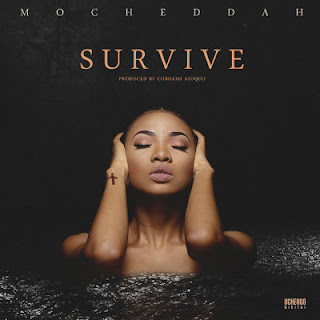
Klever Jay - Owo Eko (Lagos Money) | Naija Songs

Blackah ft. Iyanya, Yung L - Mana Style | Tubidy Mp3

Shatta Wale - Live It (Prod By Shatta Wale) (Da Maker)

Amakye Dede not happy with Kofas new movie ''Amakye & Dede'' which stars Majid, Kalybos, John Dumelo...
 |
| from left: kalybos, Maji Michel, John Dumelo |
Amakye Dede is said to be complaining over the use of his name for the movie “Amakye & Dede” which production is currently underway.
According to the source, neither the two actors nor the producers of the movie have approached the musician to officially inform him about his name used as the movie title.
Zionfelix.com's informant continued that Amakye Dede is thinking of taking actions against them but did not state if it was going to be a court case.
Efforts to reach Amakye Dede on the issue have proved futile as calls made to him were not going through as at press time.
Source: Zionfelix.com
Teenage pregnancy boosts in Kumasi
The Kumasi metropolis has for the past two years recorded an increase in adolescent pregnancy in the Ashanti Region.
Records from the health facilities in the metropolis indicate that 70 per cent of these adolescents are students aged 15 to 19.
Records from the health facilities in the metropolis indicate that 70 per cent of these adolescents are students aged 15 to 19.
Fire destroys two high Court Judges chambers in Kumasi
Three chambers of the Kumasi Court Complex was Wednesday morning destroyed by fire.
All documents including dockets, previous rulings and exhibits were all burnt in the fire.
All documents including dockets, previous rulings and exhibits were all burnt in the fire.
Constables nabbed for extortion | Ghananews

Although both of them are constables, one of them was seen in a police uniform which depicted him as an Inspector.
Personnel of the Police Intelligence and Professional Standards (PIPS) Bureau arrested Constables Faati Jacob Tinob and Musah Azumah at Tabora Junction, near Lapaz in Accra, about 8 p.m. last Thursday.
Wisa's Video shown in court, Charged with indecent exposure
A video that purportedly shows musician Eugene Ashe, popularly known as Wisa Greid, displaying his sex organ during a performance on Christmas Eve last year was Wednesday screened at the Accra Circuit Court.
The video showed the accused pulling down his pants while dancing and stroking what appeared to be his penis at the buttocks of a female performer.
Wisa, of Ekiki Me fame, was performing at a concert dubbed, “Decemba to Rememba” in Accra. It was organised by an Accra-based radio station, Citi FM.
Cross-examination
There were interesting exchanges between the lawyer for Wisa, Mr Jerry Avenorgbor, and the investigator of the case, Detective Chief Inspector Edward Adjei Odame, who is also a prosecution witness, during cross-examination.
Mr Avenorgbo told the court that the prosecutor could not ascertain whether the sexual organ shown in the video was that of the accused because he (prosecutor) had not actually seen the organ.
“Have you seen his penis before in physical form? If not, how can you confirm if the size and the colour of the one shown in the video are the same as that of the accused?” Mr Avenorgbor asked.
Chief Inspector Odame, in his response, stated that there was no need for him to see the sexual organ of the accused for him to determine whether the video was authentic or not because such an action “will be against the dignity of the accused”.
He explained that when the police arrested Wisa, they showed him the said video in the presence of his manager and “he admitted that he was the subject in the video”.
Scientific evidence
Mr Avenorgbor asked the witness if he had used any scientific method to determine whether the sexual organ shown in the video was that of the accused.
“The police always test for wee or cocaine in the laboratory,” he added.
In response, Chief Inspector Odame said there was no need to provide any scientific evidence because the accused had admitted being at the scene at the time the video was captured.
Dildo
Mr Avenogbor told the court that what was shown in the video was not a real sexual organ but rather a dildo, a false penis which the accused wore with the intention of creating a publicity stunt to advance his career.
“My Lord, this is a common practice in the music and movie industries worldwide. Since my client initiated that act, his ratings have soared,” he claimed.
Adjournment
The case was adjourned by the court, presided over by Mrs Abena Oppong Adjin-Doku, to March 22, 2016.
Background
On December 25, 2015, the attention of the Accra Regional Police Command was drawn to a nude video posted on the Internet from an unknown source.
According to the prosecution, investigations into the case revealed that on December 24, 2015, Airtel Telecommunications Company and Citi FM had organised a Christmas party at the Accra International Conference Centre, with Wisa as the guest artiste.
In the course of the event, Wisa was ushered in to perform on the main stage, together with a female dancer.
The prosecution said during the performance, Wisa stood behind the female dancer as they danced together and suddenly removed his penis to stroke the buttocks of the dancer, in the full glare of the audience.
He has been charged with indecent exposure, which is a misdemeanour.
Source: graphic.com.gh
The video showed the accused pulling down his pants while dancing and stroking what appeared to be his penis at the buttocks of a female performer.
Wisa, of Ekiki Me fame, was performing at a concert dubbed, “Decemba to Rememba” in Accra. It was organised by an Accra-based radio station, Citi FM.
Cross-examination
There were interesting exchanges between the lawyer for Wisa, Mr Jerry Avenorgbor, and the investigator of the case, Detective Chief Inspector Edward Adjei Odame, who is also a prosecution witness, during cross-examination.
Mr Avenorgbo told the court that the prosecutor could not ascertain whether the sexual organ shown in the video was that of the accused because he (prosecutor) had not actually seen the organ.
“Have you seen his penis before in physical form? If not, how can you confirm if the size and the colour of the one shown in the video are the same as that of the accused?” Mr Avenorgbor asked.
Chief Inspector Odame, in his response, stated that there was no need for him to see the sexual organ of the accused for him to determine whether the video was authentic or not because such an action “will be against the dignity of the accused”.
He explained that when the police arrested Wisa, they showed him the said video in the presence of his manager and “he admitted that he was the subject in the video”.
Scientific evidence
Mr Avenorgbor asked the witness if he had used any scientific method to determine whether the sexual organ shown in the video was that of the accused.
“The police always test for wee or cocaine in the laboratory,” he added.
In response, Chief Inspector Odame said there was no need to provide any scientific evidence because the accused had admitted being at the scene at the time the video was captured.
Dildo
Mr Avenogbor told the court that what was shown in the video was not a real sexual organ but rather a dildo, a false penis which the accused wore with the intention of creating a publicity stunt to advance his career.
“My Lord, this is a common practice in the music and movie industries worldwide. Since my client initiated that act, his ratings have soared,” he claimed.
Adjournment
The case was adjourned by the court, presided over by Mrs Abena Oppong Adjin-Doku, to March 22, 2016.
Background
On December 25, 2015, the attention of the Accra Regional Police Command was drawn to a nude video posted on the Internet from an unknown source.
According to the prosecution, investigations into the case revealed that on December 24, 2015, Airtel Telecommunications Company and Citi FM had organised a Christmas party at the Accra International Conference Centre, with Wisa as the guest artiste.
In the course of the event, Wisa was ushered in to perform on the main stage, together with a female dancer.
The prosecution said during the performance, Wisa stood behind the female dancer as they danced together and suddenly removed his penis to stroke the buttocks of the dancer, in the full glare of the audience.
He has been charged with indecent exposure, which is a misdemeanour.
Source: graphic.com.gh
Kanye West Slams The Grammys On Twitter
 |
| Kanye West photo credit: Getty Image |
R2Bees - Gboza ft. Davido (Official Video) +Mp4/Mp3 Download
Music video by R2Bees performing 'Gboza' ft. Davido. Video directed by Justin Campos - Gorilla_films. (C) 2015. R2Bees Entertainment
Jehovah Witness Preacher allegedly impregnated by a man she's having bible lessons with
 |
| Note: this is not her real face oh! just some random pic |
According to Screwlife.com, members of Kingdom Hall of Kwadaso in Kumasi, Ghana were shocked when Ophelia mentioned to the elders who really was responsible for her 3-months pregnancy.
Ophelia claimed although she goes to Obeng’s place with her father to preach to him twice a week, she and the primary school teacher have been in love.
She also said they always have sex whenever her dad does not go with her to Obeng’s pace, instead of studying.
The Jehovah Witness is said to be strict with rule of not allowing female preachers to deal with men, in order to avoid this kind of situation. But Ophelia’s father went against it anytime he needs to relax instead of observing his proselytism.
credit:naij.com|Screwlife.com
Cute little girl survives ''Kintampo accident'' Help identify her 'SHARE'
Authorities of the Komfo Anokye Teaching Hospital (KATH) have appealed to members of the public to help identify a survivor of the Kintampo road accident.
The victim, according to Mr Kwame Frimpong, Public Relations Officer of the KATH, is currently on admission at the Accident and Emergency Unit of the hospital.
He said the victim was brought in alone and it was believed that her mother might have perished in the accident.
Last Wednesday, a Metro Mass Transit (MMT) bus and a cargo truck collided on the Kintampo-Tamale road leaving 61 passengers dead and 25 others seriously injured.
The accident occurred when the Bolgatanga-bound MMT bus from Kumasi, which had developed faulty brakes, ran into an oncoming cargo truck at a place between Kintampo and Babatokuma.
Source:graphic.com.gh
The victim, according to Mr Kwame Frimpong, Public Relations Officer of the KATH, is currently on admission at the Accident and Emergency Unit of the hospital.
He said the victim was brought in alone and it was believed that her mother might have perished in the accident.
Last Wednesday, a Metro Mass Transit (MMT) bus and a cargo truck collided on the Kintampo-Tamale road leaving 61 passengers dead and 25 others seriously injured.
The accident occurred when the Bolgatanga-bound MMT bus from Kumasi, which had developed faulty brakes, ran into an oncoming cargo truck at a place between Kintampo and Babatokuma.
Source:graphic.com.gh
Charter House 'ban' Shatta Wale from VGMA 2015/2016

Charter House had dragged Shatta Wale to court for posting four videos considered defamatory on social media.
At a news conference on Tuesday, officials of Charter House, organisers of the event announced that since Shatta Wale was yet to apologise to them for insults he hurled at them last year, he was ineligible to contest in the awards scheme.
Although the Kakai hit singer had earlier said he did not want to be nominated for the awards this year, he submitted his songs when entries were opened on January 1, 2016.
source: graphic.com.gh
Shatta Wale - Like You (Prod By Shatta Wale)

Samini - Fire (The Call Riddim) (Prod By Selasi)
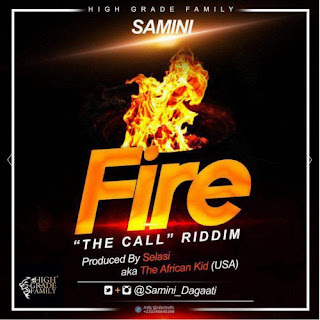
SILVASTONE - "It's All Love (Salone Love Official Video) +mp3/mp4 Download
New Video: SILVASTONE - "It's All Love (Salone Love) | Latest Ghana Music, Video, Mp4/Mp3 Downloads | News | Ghana leaks | Lyrics | Beats/Instrumentals.
Gemini - Postinor 2 ft. B2, QillaGH (Prod by B2)
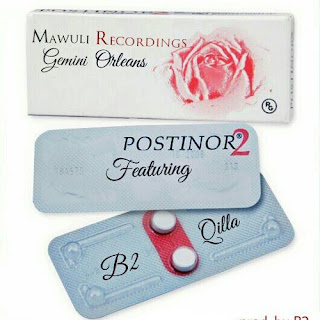
Stonebwoy, Shatta Wale, Samini to ‘fight’ Jamaica
 |
| StoneBwoy |
#LyricalWar: Shatta Wale Vs. Samini

The song talks about Samini’s readiness to fight back anyone who tries him and his Highgrade family lyrically. he goes on to state that, no matter what the change in music is, He still stands tall and nobody can dis-tool him.
Shatta Wale yesterday also released a song titled Longtime (Ets3) (Download Here). Going by the lyrics of the song, many see it as another diss reply song for his musical genre rival, Samini.
According to the lyrics of the song, Samini’s time is long overdue; his lyrics are of low standard therefore, he should just take a bow and look for something more profitable to do.
Samini who seemed not too happy with Shatta’s reply to his song has decided to meet him foot for foot, boot for boot.
Nollywood actor 'Festus Aguebor' is dead
Few days after the tragic death of popular Igodo actor Michael Odiachi, Nollywood has experienced another great loss.
Nollywood has been thrown into another deep state of mourning following the demise of a veteran Nollywood actor, Festus Aguebor known for his white beards.
Ace producer, Fidelis Duker announced on Facebook the passing away of the actor who was popular for his roles in movies such as ‘The King and I’, ‘Family Contract’, ‘Rituals’ and ‘A Kiss from a Rose’.
The former Director Guild of Nigeria (DGN) president wrote:
Source:naij.com
Nollywood has been thrown into another deep state of mourning following the demise of a veteran Nollywood actor, Festus Aguebor known for his white beards.
Ace producer, Fidelis Duker announced on Facebook the passing away of the actor who was popular for his roles in movies such as ‘The King and I’, ‘Family Contract’, ‘Rituals’ and ‘A Kiss from a Rose’.
The former Director Guild of Nigeria (DGN) president wrote:
“Adieu talented and veteran Actor Fesyud Aguebor …..remember your brilliant delivery of Chief Odeku in my 2002 movie, Family Contract starring Desmond Elliot, Chioma Akpotha, Steph-Nora Okere, Afolabi Bolasodun Makinde, Grace Evaly, amongst others …. May your soul rest in peace. Amen(sic).”Duker however did not disclose the time or cause of death. He was also popular for his role as the grandpa in family series, Household. May his soul rest in peace.
Source:naij.com
Shatta Wale - LongTime Lyrics (Samini Diss) | Latest Ghlyrics

INTRO
Laughs
Whola'dem ah funny
Everybody funny
Mi nuh lie
VERSE
Boy stop hyping
Lyrical war
Mi nuh come here so fi fight taichie
Obae eho, tashie !
Listen, im seh imm ah veteran, funny
Olu sit down and stop bragging
Leff de youth fi do de performing
Change your format
You can call me
Boner mini, mini norr ni
K3 ogbee shie, teeshi moko morr omi
Wobon dancehall keje La bormi
Mmalee yaabi y3 La goormi
When it comes to performance boy you lack lyrics
Listen dancehall ah nuh no gimmicks
Lyrics ah pierce like AK bullets
Veteran try settle down
Cyaan stand Energy God, Energy God
Ah mi seh your energy gone, energy gone
Dancehall ah nuh shouting thing ah jus vibes
Gun full loaded wi nah call no vibe
Mi nuh hire no lawyer fi do one intro
Inna your face mi buss up di big shows
Kakai and Alkaline di people want, u come fi escort wi
CHORUS 2x
Shatta ogbe am3
Shatta ogbe am3
Etse ets3 ogbe am3
Shatta ogbe am3
Shatta ogbe am3
Ets3 ets3 ets3
VERSE 2
Ah mi make dem bill you up pon dis show
Everbody knows
So don come brag and don come boast
Perform ina peace and go home
Buh if mi was a chef
Mi would'a be ah beef maker
Price wise Man ah real big taker
Da Maker Da Maker mi signature
Wi have to keep dis healthy
O'?aashie etsa
Nbother ko nbother ko
Inaabo ajagago ajagago
Y3 maame anaabo anaabo
Onerr ok3 yet ebafor inkalo
Odidoo wor jouo fe mango mlikiti
Shi wo worr fe oyoo3 yititi
Twa nlala ni ok3 m3 repeati
Wor dumor mi ets3 fri titi
CHORUS 2x
Shatta ogbe am3
Shatta ogbe am3
Etse ets3 ogbe am3
Shatta ogbe am3
Shatta ogbe am3
Ets3 ets3 ets3
VERSE
Boy stop hyping
Lyrical war
Mi nuh come here so fi fight taichie
Obae eho, tashie !
Listen, im seh imm ah veteran, funny
Olu sit down and stop bragging
Leff de youth fi do de performing
Change your format
You can call me
Boner mini, mini norr ni
K3 ogbee shie, teeshi moko morr omi
Wobon dancehall keje La bormi
Mmalee yaabi y3 La goormi
When it comes to performance boy you lack lyrics
Listen dancehall ah nuh no gimmicks
Lyrics ah pierce like AK bullets
Veteran try settle down
Cyaan stand Energy God, Energy God
Ah mi seh your energy gone, energy gone
Dancehall ah nuh shouting thing ah jus vibes
Gun full loaded wi nah call no vibe
Mi nuh hire no lawyer fi do one intro
Inna your face mi buss up di big shows
Kakai and Alkaline di people want, u come fi escort wi
CHORUS 2x
Shatta ogbe am3
Shatta ogbe am3
Etse ets3 ogbe am3
Shatta ogbe am3
Shatta ogbe am3
Ets3 ets3 ets3
Samini - Anytime Lyrics (Shatta Wale Diss) | Latest Ghlyrics
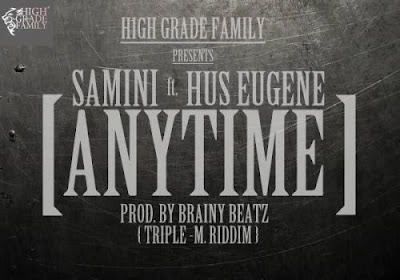
Intro (Hus Eugene)
MIGHTY
Come like de people dem ready yah now
Ah shelling we come fi shell down de place (High Grade)
Check de artists pun bill
Man ah veteran man a king pun bill
Certified fi go kill em all pun bill
Verify fi yuh self it’s a done deal
Check me from every international gig
Trade mark shelling a me natural gift
Trigger finger ready fi go defend me turf
High grade fam we seh straight to de world...
Repatriation, de plane land
Send a tone load a chalice mek dem blaze pun
Big up Eliphant Alkaline and cranium
Tell Samini seh fi bring dem at de stadium
Tell em seh mea de baddest round yah
Tell Eli seh mea de strongest round yah
Alkaline fi know who maddest round yah
Tell cranium we are de highest round yah
HOOK 2x
Samini ready anytime
Lyrical war
We ain’t backing down
Walahi (High Grade)
Samini ready anyday
See we Stand tall
We ain’t backing down
Walahi (High Grade)
So mr energy God
Are Ready fi go see where unu energy from
Man top notch when it come fi energy songs
Too sick wonder where me get me remedy from
Man energy don
Fire energy burn
See de African sun tun de energy on
Real high grade deh fi mek de energy pump
Like blood thru me vain asoh de energy run
Fire pun de miming artiste dem
Off key wrong timing artiste dem
Off beat Wack styling artiste dem
Kill mask wearing artiste
Man a top notch
We do it constantly we no need no stop watch
yuh don shatta tell dem fi stop watch
big balls dem know we drop crutch
HOOK 2x
Samini ready anytime
Lyrical war
We ain’t backing down
Walahi (High Grade)
Samini ready anyday
See we Stand tall
We ain’t backing down
Walahi (High Grade)
VERSE
Check de artists pun bill
Man ah veteran man a king pun bill
Certified fi go kill em all pun bill
Verify fi yuh self it’s a done deal
Check me from every international gig
Trade mark shelling a me natural gift
Trigger finger ready fi go defend me turf
High grade fam we seh straight to de world...
Repatriation, de plane land
Send a tone load a chalice mek dem blaze pun
Big up Eliphant Alkaline and cranium
Tell Samini seh fi bring dem at de stadium
Tell em seh mea de baddest round yah
Tell Eli seh mea de strongest round yah
Alkaline fi know who maddest round yah
Tell cranium we are de highest round yah
HOOK 4x
Samini ready anytime
Lyrical war
We ain’t backing down
Walahi (High Grade)
Samini ready anyday
See we Stand tall
We ain’t backing down
Walahi (High Grade)
Outro
Photo: Musician Caught rubbing dancer's Vag*na on stage

Nkonkonsa.com have exclusive photo showing the upcoming Musician fondling a female dancer’s private part on stage and practically trying to ‘finger’ the innocent victim while performing on stage.
Subzilla - Sisi Eko (Remix) ft. Reminisce, Tekno | Latest naija Songs

Atom - kwansema (Prod by MethMix) | GhanaMusic
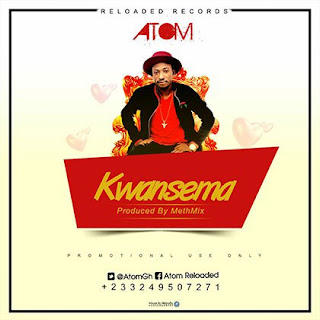
Shatta Wale - Longtime (Ets3) (Samini Diss)
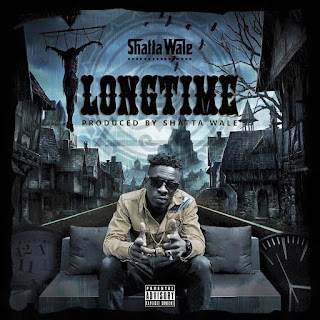
2Baba x Ice Prince x Waje - 50 50 | latest Naija Music

Shatta Movement and Shatta Movement Family finally back together
Finally the bad blood between ''Shatta Movement'' and ''Shatta Movement Family'' has be cleaned up and they are ready to work together again, confirmed by Shatta Wale himself via his faceobook, see post below after the cut.
Source: blissgh.com
For your Info SMF and SM has finally joined hands together as one Family and the Good news is that we about to raise Dancehall to the heights that you cant imagine..We started this whole Squad.Crew,Family.Movement and the mission will be accomplished.Thanks to God for bringing back my blood #Juwaid ...4LYF is Mosdef 4LYF
Source: blissgh.com
Photo: Man's Pen*s gets stuck in another man's wife
A Twitter user, @Kevin_teya, is claiming that a guy in Kitale, Kenya had sex with someone’s wife and he got stuck.

See what people are saying about the incident...

See what people are saying about the incident...
Subscribe to:
Comments (Atom)
Author Name
Powered by Blogger.

%2B%5Bwww.blissgh.com%5D.jpg)










